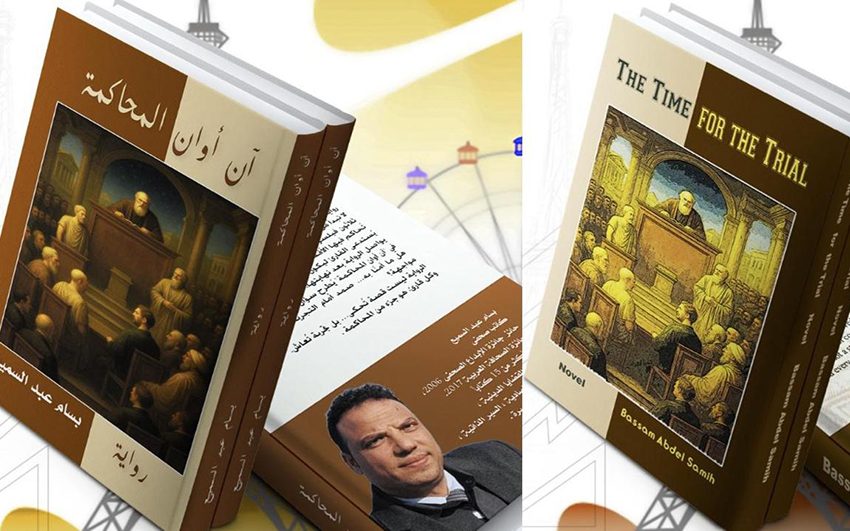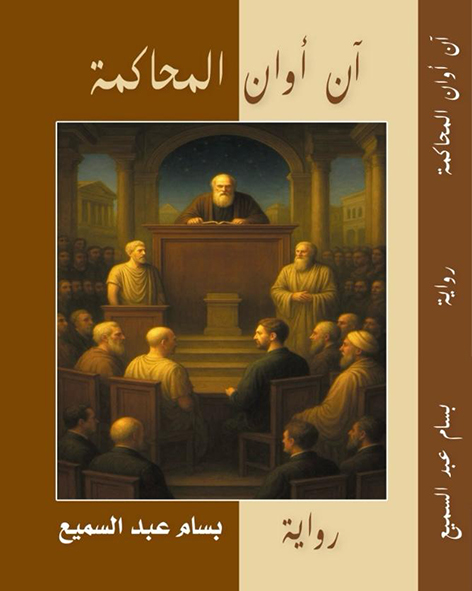The Audience Writes Its Freedom in “The Time for the Trial”

The audience present in the courtroom writes its freedom by revisiting the ideas and theories that have shaped nearly 3,000 years of human history, through the novel by Egyptian journalist and writer Bassem Abdel Samie, published on Amazon.com in two editions — in Arabic as “آن أوان المحاكمة” and in English as “The Time For The Trial”. The novel opens an unprecedented door to put human thought itself on trial, bringing together philosophers of the East and West in a single metaphysical courtroom.
Inside this court, the audience speaks:
“Descartes wanted to prove his existence and created a doubt we could never surpass. Nietzsche declared the death of God, values trembled, and truth cried out: ‘Who will care for me now?’ Kant told us that morality does not require a reward, but we were raised on fear, not freedom.”
The audience continues:
“Rousseau promised freedom, then told us we are chained everywhere. Marxwanted to free man from exploitation, but history turned him into a cog in the machine of class struggle. Sartre handed us the keys to choice, but they were doors without maps. And Fukuyama wanted to close the book of history, but we are still stuck in the index, trying to understand who began the story.”
The novel summons more than thirty philosophers and over a hundred intellectual and historical figures — from Socrates, Plato, and Aristotle toAvicenna, Al-Ghazali, Ibn Rushd, Descartes, Rousseau, Nietzsche, Sartre, and finally Fukuyama, who offers a reimagined reflection on his famous thesis:
“I am rethinking, as every writer should revisit his work. Democracy may face peril if it does not answer the needs of the soul. What I meant by the ‘end of history’ was the end of the great ideological struggles — not the end of history itself.”
The novel introduces a set of unprecedented symbolic documents such as: Memory of Consciousness, Birth Certificate of the Digital Chip, Protocol for Digital Organ Transfer, Authority of Digital Remains, the New Technological Calendar (364 days – 13 months), the Enhanced Human, and the Neo-Humans Generation — raising a profound question: Does man remain alive through consciousness, or is he reduced to a digital file that can be archived and retried?

In an innovative philosophical approach, the novel proposes what the author calls “Mosaic Philosophy,” which holds that no single philosopher or school possesses the whole truth, but that truth is a mosaic of contradictions that only becomes complete when its pieces are assembled in one frame.
“The Time For The Trial” inaugurates a new trend in world literature — Interactive Investigative Fiction — blending journalistic techniques such as documents, questions, and testimonies with a dramatic, reflective narrative, turning the novel into an open intellectual stage that re-examines history and consciousness.
Bassem Abdel Samie is an Egyptian writer and journalist with over three decades of media experience, having worked in newspapers, news agencies, and digital platforms. He has published more than 17 books across fiction, short stories, politics, economics, and biography, and has been awarded the Journalistic Creativity Award (2006)and the Arab Journalism Award (2017).

















